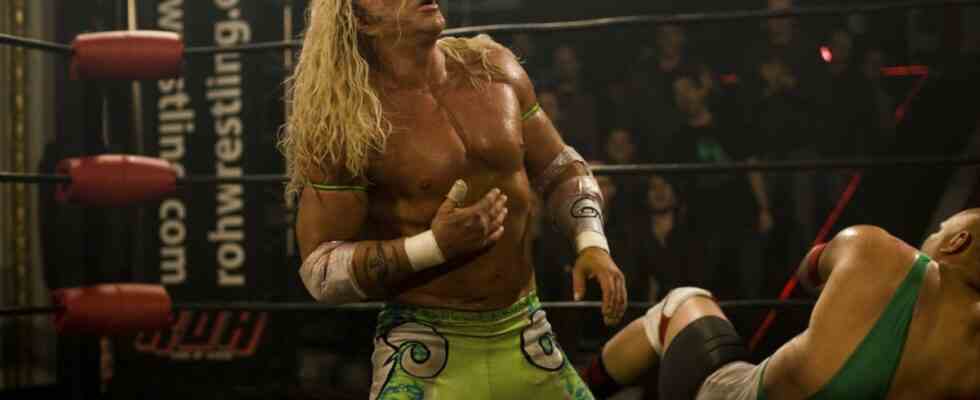He was a beautiful man when he came to the cinema, an irrational beauty that was sometimes angelic, but behind which there was often a hint of the devil. In Walter Hill’s “Johnny Handsome,” he acquires this beauty through a series of surgeries – he’s first a misshapen boy, features as deformed and bruised as the words he’s struggling to utter, one thinks of the elephant man in the David film Lynch. After a botched robbery he ends up in prison, when he can get out again he falls in love, but he doesn’t want to give up the thought of taking revenge on the accomplices who betrayed him. The film has a beautiful, fairytale-like parable-like quality… the beauty is the beast.
Philip André Rourke Jr., who made a career in cinema as Mickey, was born on September 16, 1952 in Schenectady, New York. As a teenager he boxed for a few years, gave up the sport due to a concussion and started acting. With him came an innocence returned to cinema that had been missing since James Dean, in 1982, in Barry Levinson’s “American Diner,” about a group of boys who gather night after night at the eponymous location meet, chat a little, do a little important.
He finds his super-successful colleague Tom Cruise “irrelevant”
Rourke was a gambler, not very successful but very easygoing in the uncertainty of his existence. In Francis Coppola’s “Rumble Fish” a year later, he was the Motorcycle Boy, the brother of young Matt Dillon, who had gone to California, to the sea, and then came back to Tulsa. He doesn’t talk much, but his body and his movements tell the story. In “9 1/2 Weeks”, 1986, Kim Basinger and Mickey had a hot sadomasochistic relationship, the film made Mickey a cult figure, the sexiest man in Hollywood. Later he even played St. Francis in a very sexy way in Liliana Cavani’s film. In “Barfly” by Barbet Schroeder he is a writer, the screenplay was written by Charles Bukowski. In the 1980s, Mickey Rourke accompanied Michael Cimino on his bizarre path to failure, in three films maudits, “Heaven’s Gate”, “Year of the Dragon” and “The Desperate Hours”. In “Year of the Dragon” he is a cop in Chinatown, once he quotes the Chinese thinker Mengzi: “A great man is he who does not lose the heart of a child.”
He doesn’t talk much, but his body and his movements tell the story: Mickey Rourke and Kim Basinger in “9 1/2 Weeks”.
(Photo: Imago/Mary Evans)
Mickey Rourke then gave up acting for a few years and tried his hand at boxing again, and again he took a beating. There were various facial surgeries because of the injuries, plus alcohol problems – the youth was gone. In the late ’80s he provided a few rap lines in David Bowie’s Shining Star (Makin’ My Love), and in 1988 he wrote his first screenplay for the film Homeboy, in which he played a boxer, with Christopher Walken as his promoter . In Darren Aronofsky’s “The Wrestler” he is Randy “The Ram” Robinson, a wrestler who stubbornly believes in success. He turned down the role of Butch Coolidge, another boxer, that Tarantino offered him in “Pulp Fiction” and Bruce Willis took it on successfully.
Mickey Rourke does not shy away from provocation. He wears a Putin designer T-shirt – “A gentleman. Good guy” – and most recently he shot “The Palace” with the ostracized Roman Polanski – “God save the man”. He finds his super-successful colleague Tom Cruise “irrelevant” because he’s been playing the same thing for decades.
Mickey Rourke turns seventy on Friday. “He’s not crazy,” says Dennis Hopper, the father in “Rumble Fish”, of his older son, the Motorcycle Boy: “He was born in the wrong time, on the wrong side of the river. He can do anything he wants…but he can’t find anything he wants to do.”

